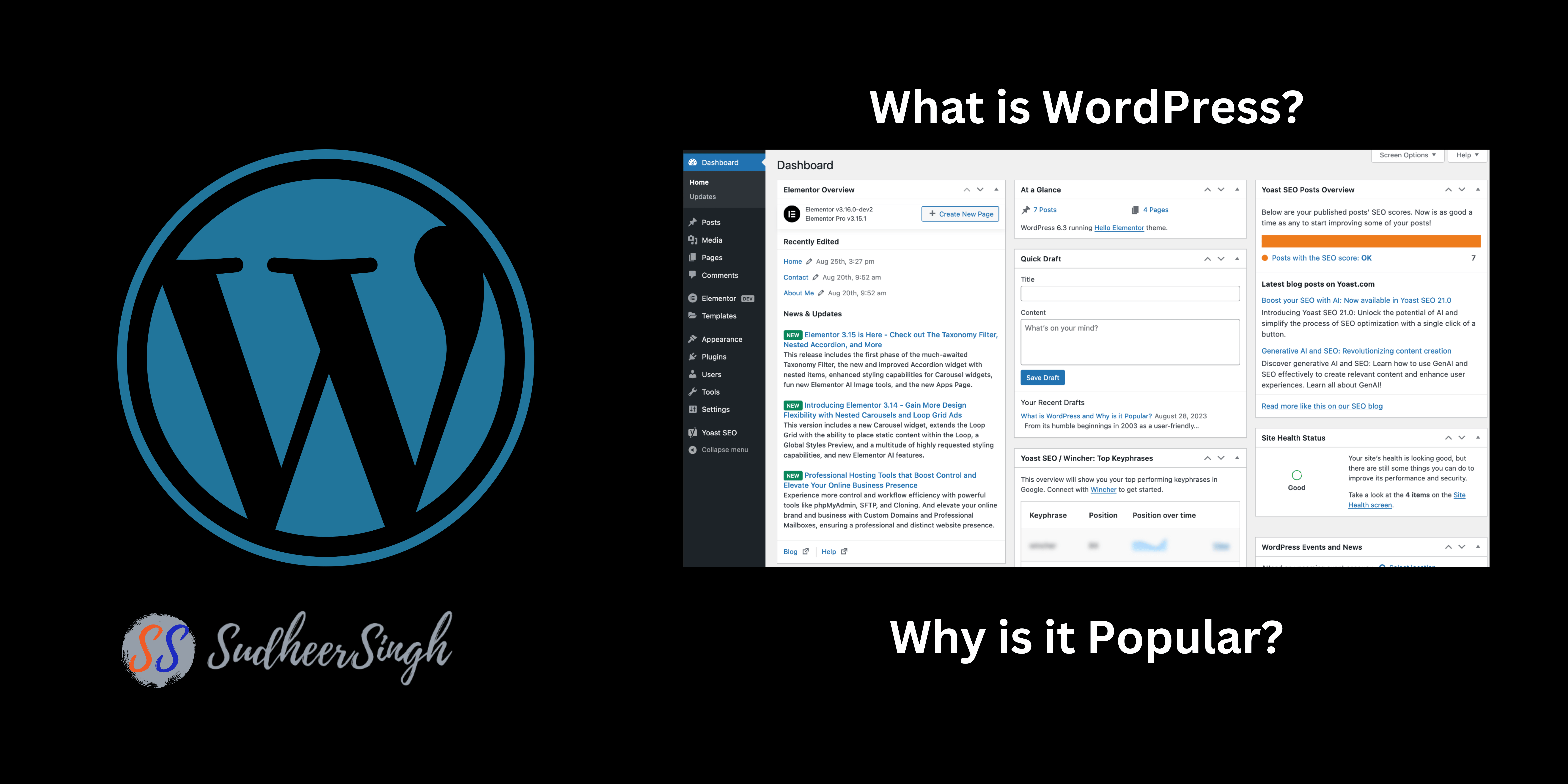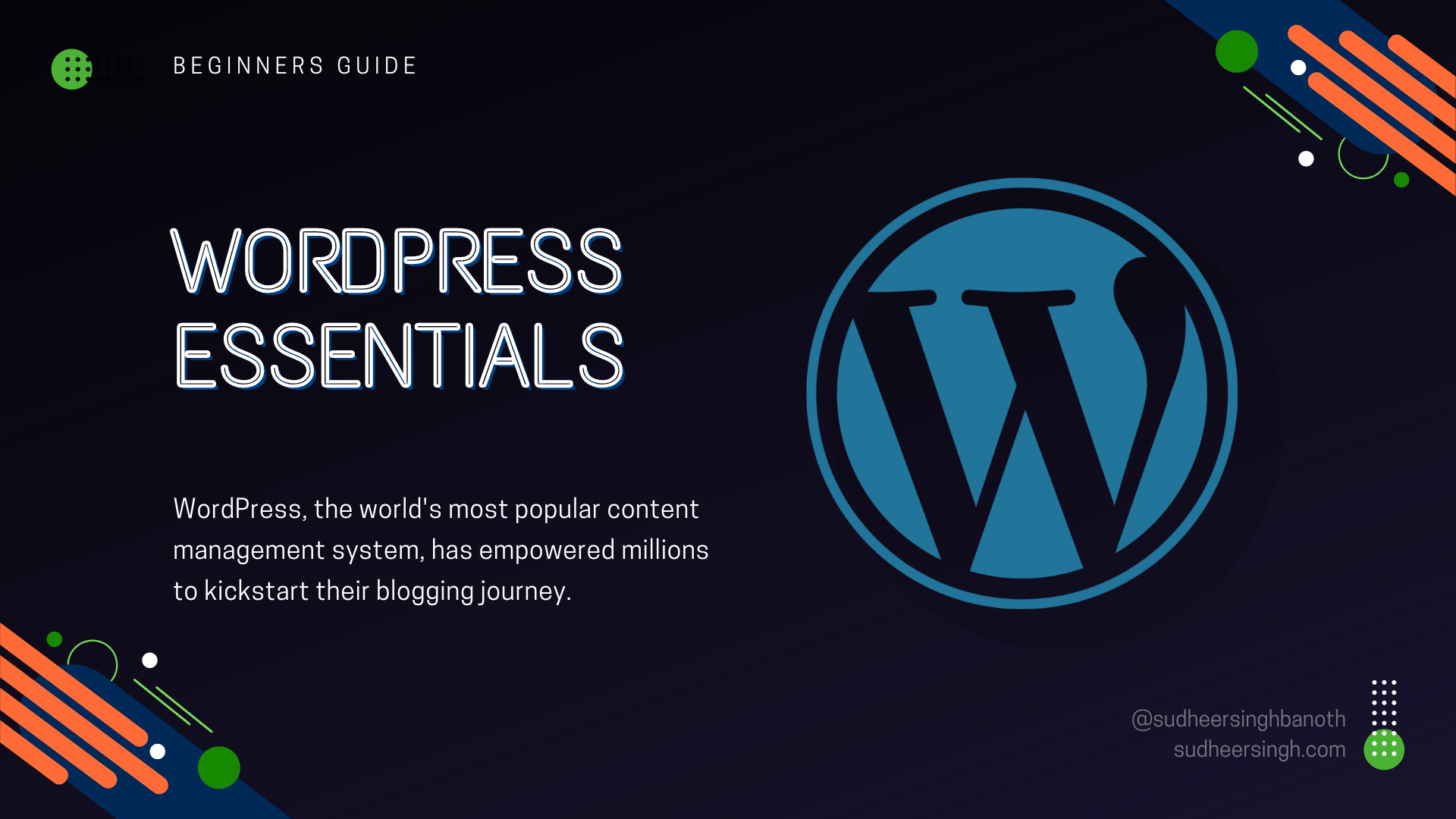
From its humble beginnings in 2003 as a user-friendly blogging tool, WordPress has transformed into the world’s most popular Content Management System (CMS). Today, it powers over a third of the entire web, ranging from personal blogs to professional websites of global corporations. But what is it that has led to the meteoric rise of WordPress, and why do millions prefer it over other platforms? Let’s dive in.
A Brief Introduction to WordPress
WordPress is an open-source content management system that allows users to create and manage websites without any need for coding knowledge. Written in PHP and paired with a MySQL or MariaDB database, WordPress provides user-friendly templates and plugins, making it accessible to people with varying technical proficiencies.
The Key Reasons Behind WordPress’s Popularity
1. Open Source and Free: WordPress is 100% free, and being open source means that its source code is available to the public. This has resulted in a vast community of developers contributing to its growth, ensuring it’s constantly evolving and improving.
2. User-Friendly Interface: With its intuitive dashboard, creating posts, adding images, and customizing themes are straightforward. Even those without any technical know-how can build their site with ease.
3. Flexibility and Customization: WordPress boasts over 55,000 plugins and thousands of free and premium themes. Whether you’re setting up an e-commerce store, a portfolio, or a news site, WordPress is adaptable to any need.
4. SEO Friendly: Websites built on WordPress are optimized for search engines out of the box. Furthermore, with plugins like Yoast SEO, optimizing posts and pages for search engines becomes a breeze.
5. Active Community: Due to its widespread use, there’s a massive global community around WordPress. This means unlimited support, with forums, online courses, and tutorials aplenty.
6. Safety and Security: While no platform is immune to threats, WordPress takes security seriously. Regular updates, coupled with plugins like Wordfence, help keep your site secure.
7. Integration: WordPress seamlessly integrates with numerous third-party tools and platforms, from email marketing solutions like Mailchimp to social platforms like Facebook.
The Evolution of WordPress: Beyond Just Blogs
Initially developed as a blogging tool, WordPress’s capabilities have expanded drastically. It’s no longer confined to blogs. Large e-commerce sites, portfolios, news outlets, and even social networks can be built on WordPress. Renowned names like BBC America, TechCrunch, and The New Yorker are powered by WordPress, a testament to its scalability and versatility.
Gutenberg: The Game Changer
The recent introduction of the Gutenberg block editor marked a significant shift for WordPress. With a focus on a more visual and intuitive site-building experience, Gutenberg utilizes ‘blocks’ for adding content elements, ensuring that users don’t need any third-party page builders.
The Road Ahead
The future for WordPress looks promising. With continued improvements, regular updates, and a responsive community, it’s poised to remain the preferred choice for web developers, businesses, and bloggers alike.
Conclusion
WordPress’s success isn’t accidental. Its user-centric design, coupled with flexibility and an unwavering community, ensures it’s the top choice for many. Whether you’re a budding blogger or a business magnate, WordPress’s offerings can cater to any digital need, explaining its continued dominance in the web world.



